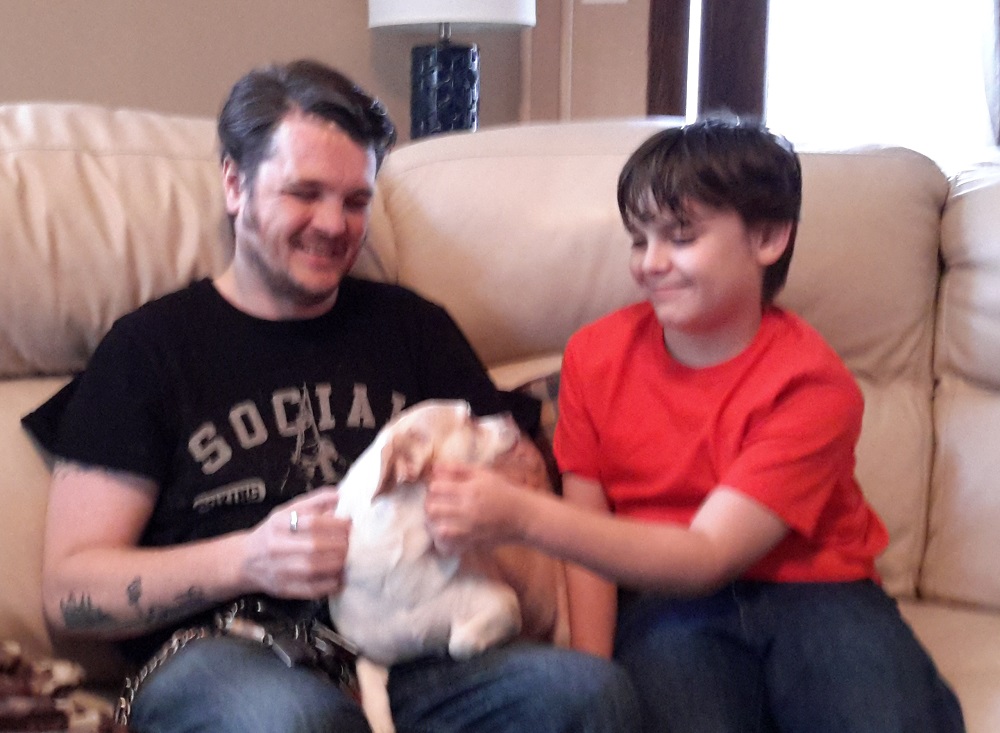 Randy Davis knows hospitals. When he was 13, doctors found a benign tumor in his brain. Since then, surgical teams have removed the tumors that just won’t quit. Not only did he worry about his health, he had to figure out how to pay for his medications.
Randy Davis knows hospitals. When he was 13, doctors found a benign tumor in his brain. Since then, surgical teams have removed the tumors that just won’t quit. Not only did he worry about his health, he had to figure out how to pay for his medications.
The social workers at Carle changed that.
An inpatient social worker, an outpatient social worker and a prescription assistance coordinator marched to Davis’ side. They worked tirelessly to ensure he had the medication he needed at a price he could afford.
“We’re a listening ear in a patient’s time of need. We’re their support and sounding board when they don’t know what to do,” said inpatient social worker Erica Volkmann, LSW. “Social work is holistic, and we work to maintain the dignity of the patient.”
Social workers at Carle serve as advocates for patients and their families. They help patients manage financial, social and emotional issues during and after time in the hospital. Their role is essential for patient-focused care.
Last November, Carle treated Davis of Bondville for seizures.
“When I first met Randy, he had Medicare, but he didn’t have drug coverage,” Volkmann said.
“Inpatient social workers are there for the person in their exact moments of need. I worked with him to ensure he got his prescription when he left the hospital, but I wanted to make sure he had a long-term plan for getting his medication.”
Unfortunately, Davis’ seizure medication costs $800 a month.
Carle participates in the federal 340B program which allows hospitals to discount some medications for patients. Because of the program as well as Care Coordination funds, Davis, a former small machine worker, was able to get his medication for free for the entire month of December.
For a lasting solution, Volkmann introduced Davis to Denise Childress, LCSW, a Carle outpatient social worker.
“I applied him for a prescription assistance program with help from our coordinator, Laura Keller. This would allow Randy to get his seizure medication for the next month,” Childress said. “I also helped him apply for a program to help with the costs of prescription insurance.”
Some drug companies offer programs so qualifying patients can get their medications at reduced prices or even for free.
“The financial aspect of all of this is very stressful,” Davis said. “But Denise took care of it. I knew I had someone in my corner.”
The prescription assistance program made life easier because Davis had the drugs he needed for January and February. Childress then helped him enroll in a Social Security Extra Help program for the long-term. This program subsidizes the costs of prescription drugs as well as drug coverage premiums under Medicare Part D.
Davis now has a $0 deductible and a $1.20 monthly premium. Also, his name-brand seizure medication costs $8.25 monthly rather than $800.
“I didn’t even know Medicare Part D was an option,” Davis said. “But it’s been a tremendous help. Denise has been so patient throughout this. She’s the right person in the right place.”
 Childress also helped him apply to the Carle Financial Assistance Program, which provides discounted or free care to eligible patients who can reapply each year. This program helped Davis pay for his hospital bills.
Childress also helped him apply to the Carle Financial Assistance Program, which provides discounted or free care to eligible patients who can reapply each year. This program helped Davis pay for his hospital bills.
“Denise really cared, and she said she liked doing this,” Davis said. “I feel better than I ever have. My friends say I’m more engaged and talkative now.”
This is exactly why Childress does what she does.
“They see the value in social work, and the long-standing relationships are so special,” Childress said. “I love getting to help people every day.”
Categories: Staying Healthy, Community
Tags: social work, Carle, support, help, seizure, medication, affordable
